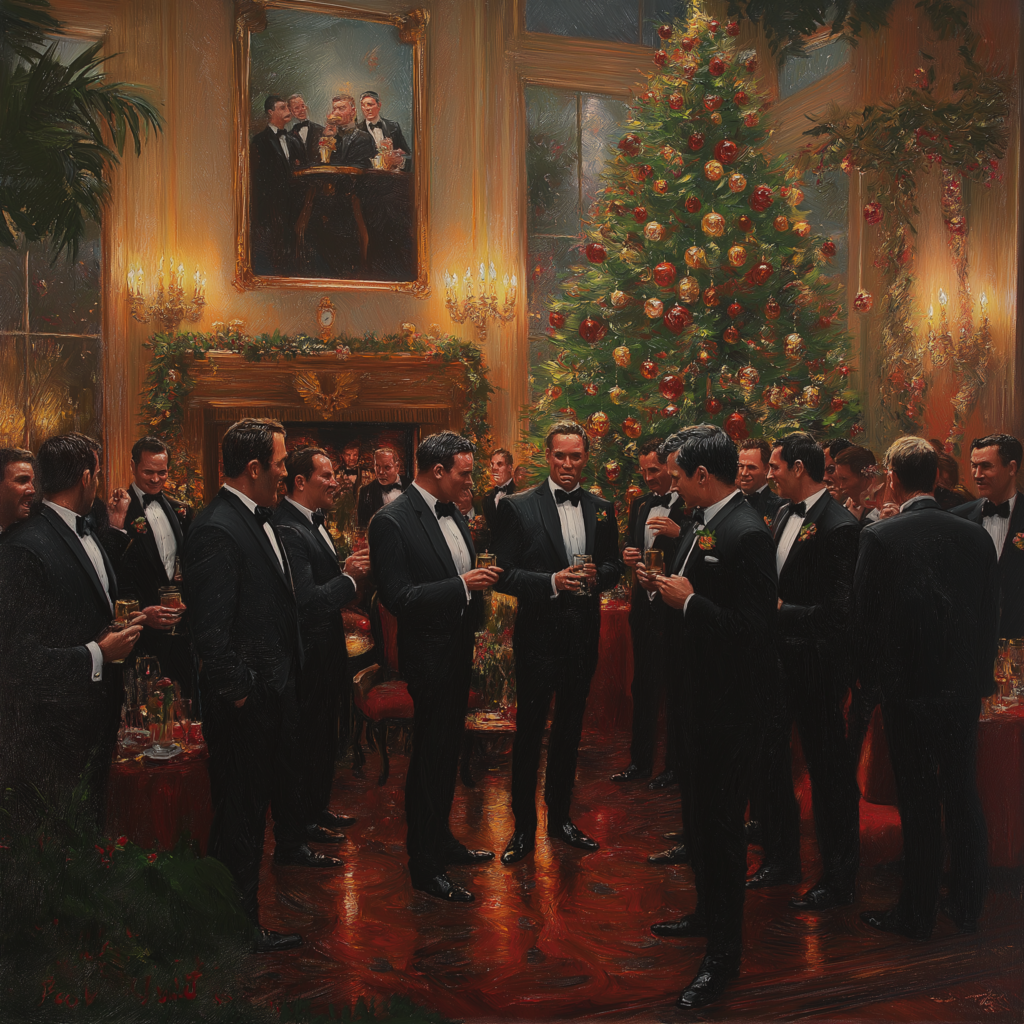The holiday season, with its warmth and traditions, provides a unique lens through which we can explore the shared values and principles of Freemasonry and Christmas. Both are steeped in history, symbolism, and a commitment to fostering goodwill among people. In this blog post, we delve into how Freemasonry and Christmas intertwine, shedding light on their mutual emphasis on charity, fraternity, and the pursuit of light and truth.
Freemasonry: A Brief Overview
Freemasonry is one of the world’s oldest fraternal organizations, with roots tracing back to the stonemasons’ guilds of the Middle Ages. Its members, known as Freemasons, meet in lodges and adhere to a system of moral and philosophical teachings symbolized by tools of the mason’s trade, such as the square, compass, and level. Central to Freemasonry are the values of brotherly love, relief (charity), and truth.
Freemasonry is not a religion but emphasizes spiritual development and moral growth. It welcomes men of all faiths who profess a belief in a Supreme Being, referred to as the Great Architect of the Universe. This inclusivity has allowed Freemasonry to cultivate a rich tapestry of cultural and philosophical influences.
The Essence of Christmas

Christmas is a Christian holiday commemorating the birth of Jesus Christ. Beyond its religious significance, Christmas has become a universal celebration marked by themes of joy, giving, and unity. The holiday encourages reflection on values such as love, compassion, and selflessness.
Read: The Golden Rule
Over time, Christmas traditions have evolved to include customs like decorating trees, exchanging gifts, and sharing festive meals. These traditions are imbued with symbolism and often align with broader philosophical ideals, making them a point of connection with Freemasonry.
Shared Values: Freemasonry and Christmas
Charity and Giving
One of the most striking parallels between Freemasonry and Christmas is the emphasis on charity. Freemasonry teaches the importance of relief—helping those in need—as a core tenet. During the Christmas season, acts of kindness and generosity become particularly prominent, from donating to charities to volunteering at shelters.
Masonic lodges worldwide frequently engage in charitable activities, especially during the holiday season. Initiatives like toy drives, food donations, and fundraising events reflect the shared commitment to uplifting communities and embodying the spirit of giving.
Brotherhood and Unity
Freemasonry is built on the principle of brotherhood, transcending barriers of race, religion, and nationality. Similarly, Christmas promotes unity and goodwill among all people. The concept of “peace on Earth and goodwill toward men” echoes the Masonic ideals of harmony and universal fraternity.
Holiday gatherings, whether in Masonic lodges or family homes, emphasize togetherness. These occasions provide an opportunity to reflect on shared values and strengthen bonds, much like the Masonic tradition of fellowship.
Light and Enlightenment
In Freemasonry, the pursuit of light symbolizes the quest for knowledge, truth, and spiritual growth. Christmas, often referred to as the “season of light,” celebrates the arrival of Jesus Christ, regarded by Christians as the light of the world. Symbolically, both traditions encourage individuals to seek illumination and spread light in a metaphorical sense.
The lighting of Christmas candles and decorations serves as a reminder of hope and renewal, mirroring the Masonic belief in personal and collective enlightenment.
Masonic Symbols in Christmas Traditions
Some scholars and enthusiasts have noted intriguing symbolic overlaps between Masonic traditions and Christmas customs. For example:
- The Star: The Star of Bethlehem, guiding the Magi to Jesus, resonates with the Masonic five-pointed star, symbolizing divine guidance and inspiration.
- The Evergreen Tree: The evergreen, a symbol of eternal life in Christmas traditions, parallels the Masonic acacia, which represents immortality and resilience.
- The Feast: Masonic festive boards, held to celebrate fellowship, are reminiscent of Christmas feasts, where shared meals signify unity and gratitude.
Historical Connections
Historically, many notable Freemasons have celebrated Christmas with reverence. Prominent figures such as George Washington and Benjamin Franklin, both Freemasons, were known for their commitment to charitable endeavors, especially during the holiday season.
Moreover, some Masonic rituals and ceremonies incorporate seasonal themes. For instance, the Winter Solstice, closely aligned with Christmas, is significant in Masonic traditions as a time of reflection and renewal. The solstice represents the triumph of light over darkness, a theme central to both Freemasonry and Christmas.
Freemasonry and the Spirit of Christmas Today
In contemporary times, Masonic lodges continue to embrace the spirit of Christmas through various initiatives. These include organizing community events, supporting local charities, and hosting holiday celebrations open to members and their families.
For Freemasons, the holiday season serves as a reminder of their obligations to practice charity, promote unity, and pursue enlightenment. These principles not only align with the ethos of Christmas but also inspire Freemasons to contribute meaningfully to society.
Read: Christmas and Freemasonry
Freemasonry and Christmas, while distinct in origin and practice, share a profound philosophical kinship. Both emphasize values such as charity, unity, and the pursuit of light and truth. By exploring these connections, we gain a deeper appreciation of how timeless principles can transcend specific traditions, enriching our understanding of both.
As we celebrate the holiday season, let us embrace the shared ideals of Freemasonry and Christmas: to give generously, foster unity, and seek the light within ourselves and others. In doing so, we honor the enduring legacy of these traditions and their capacity to inspire goodness in the world.
